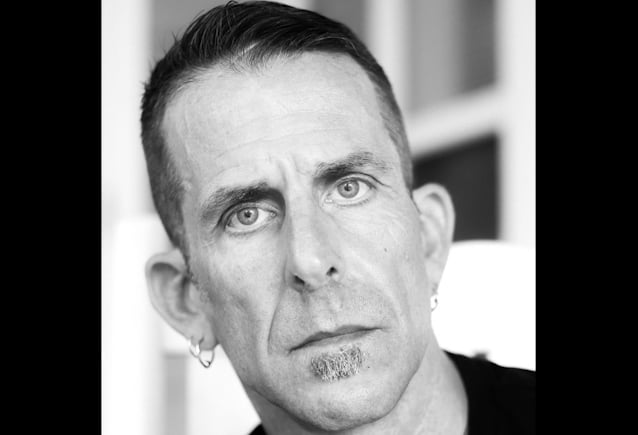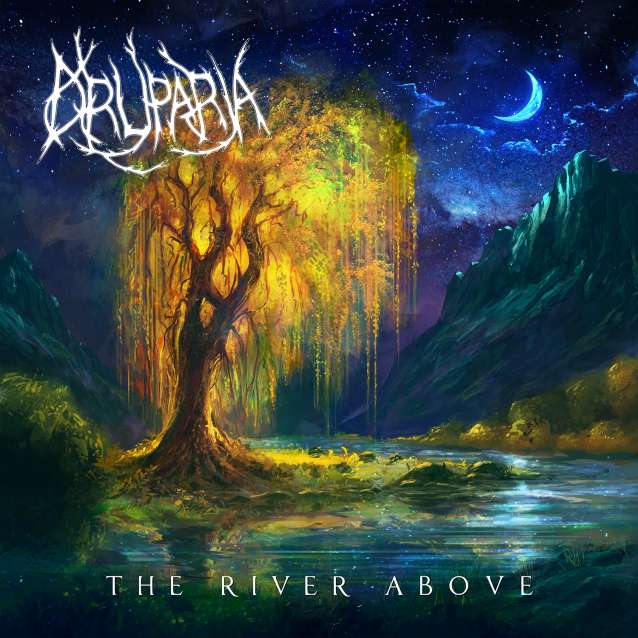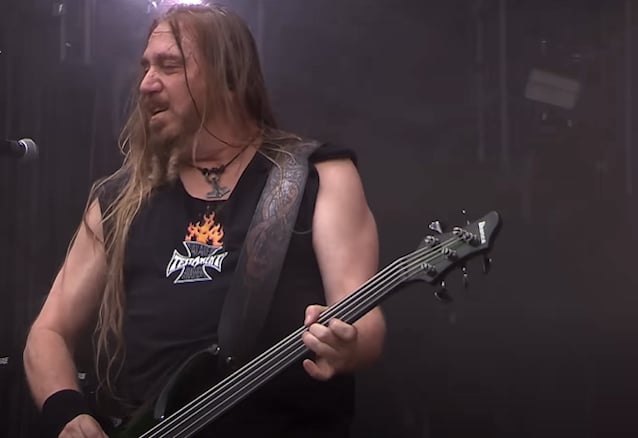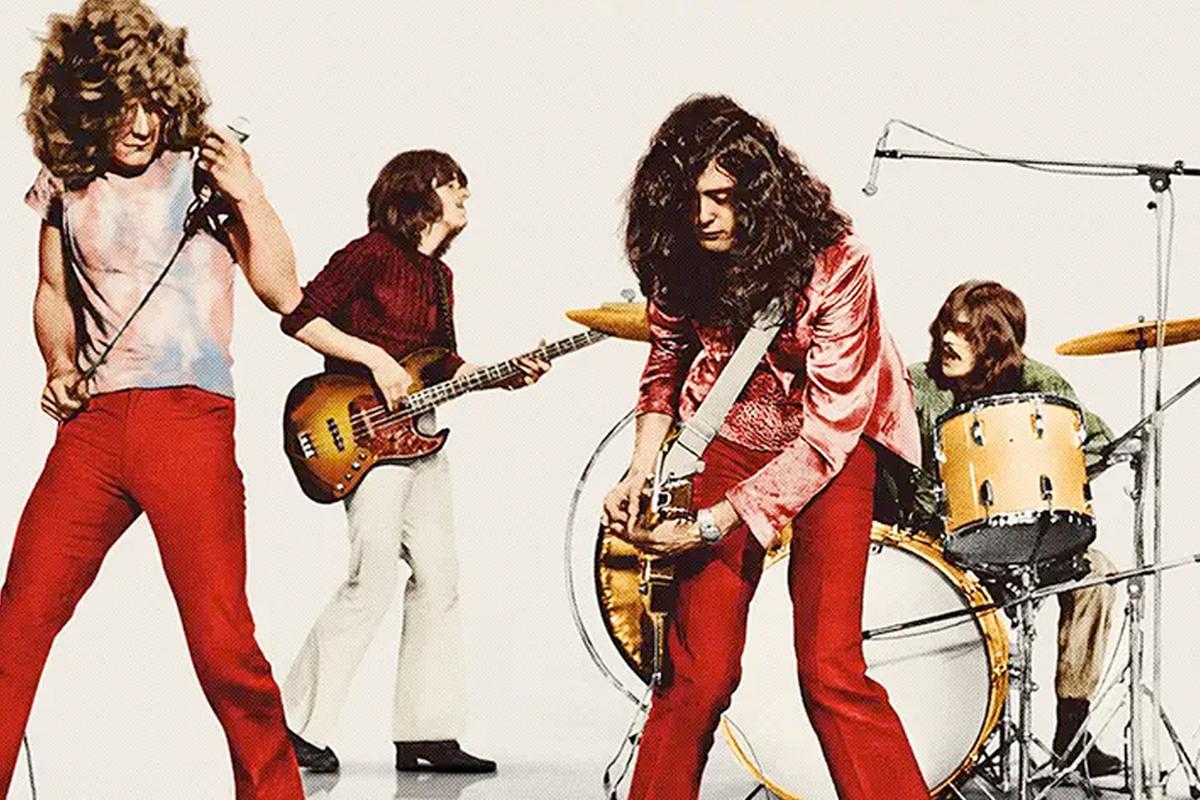LAMB OF GOD frontman D. Randall “Randy” Blythe has announced three spoken-word and question-and-answer events to promote his upcoming book, “Just Beyond The Light: Making Peace With The Wars Inside Our Head”.Due on February 18, 2025 via Grand Central Publishing (GCP),”Just Beyond The Light” is described by the singer as a “tight, concise roadmap of how I have attempted to maintain what I believe to be a proper perspective in life, even during difficult times.”Says Randy),: “Excited to announce that I’ll be doing a few ‘Just Beyond The Light’),spoken word + Q&A events in Philadelphia, Boston and Chicago. Each ticket will include a copy of my new book ‘Just Beyond The Light’),and the event will conclude with a book signing.”The dates are as follows:Feb. 19 – Underground Arts – Philadelphia, PAFeb. 23 – The Center for Arts at the Armory – Somerville, MAMar. 01 – The Forge – Joliet, ILTickets go on sale this Friday, December 6 at 12 p.m. EST from randyblythe.com.In his gripping, best-selling debut memoir, “Dark Days”, Blythe unflinchingly wrote about some of the most harrowing episodes of his past. Now, in his highly anticipated follow-up, Blythe shares how he works daily to maintain positivity in a world that feels like it is spinning out of control. Written with a scathing balance of hard-edged reality offset by a knowing humor and a razor-sharp wit, voiced in in his inimitable, conversational, everyman-philosopher style, Blythe clearly breaks down his approach to life, which is a personal and idiosyncratic mix of sobriety, art, and surfing. He writes movingly of his childhood in the South, of fallen friends, of what he’s learned touring the world as the vocalist of a successful heavy metal band, and of the very real ways he is doing what he can to leave the world a better place. Above all, he offers readers hope that balance, real balance, is possible, even (or especially) when things seem hopeless.Compelling, compassionate, and refreshingly honest, “Just Beyond The Light” ultimately reminds readers that “as long as we keep our feet (and minds) planted firmly on the ground that is reality, the sky isn’t falling — it never has been, and it never will.”Blythe says: “For me, the single most gratifying aspect of being an artist is learning that your work has been useful to others in some way. I’ve been told by lots of readers that my last book, ‘Dark Days’, helped them. I hope ‘Just Beyond The Light’ does the same.”Ben Schafer, executive editor at Grand Central Publishing, adds: “In chaotic times, Randy’s outlook is a bulwark against despair. His perspective is hard-earned, and ‘Just Beyond The Light’ reminds us that we can all work daily to achieve balance in our lives and strive to implement it in the world.”In a recent interview with Radioactive MikeZ, host of the 96.7 KCAL-FM program “Wired In The Empire”, Blythe was asked if “Just Beyond The Light” picks up where “Dark Days”, which focused on his ordeal in a Czech Republic prison and his subsequent acquittal, left off or if it’s a completely different book. Randy said: “It’s a completely different book. It’s a collection of — I wouldn’t call ’em essays, but different chapters about, basically different people and experiences who have [changed] my perspective for the better.”As I get older, I try not to make the same stupid mistakes again and again and again and again,” he explained. “And surprise, surprise, if you look at people who — you look at them and you think, ‘Man, this person has their life together,’ or, ‘They’ve acted in a manner that I find admirable,’ if you pay attention to them and follow their example, you don’t do stupid things yourself. I’m not saying that I don’t still do stupid things, but I’m trying fully in my old age to learn from others more.”When Radioactive MikeZ noted that it’s “interesting” that Randy actually interviewed his then-94-year-old grandmother for the book, Blythe said: “Yeah, she passed away. There’s a chapter. Well, I didn’t interview her for the book. I interviewed her because she was 94. She lived to be a hundred and a half. And there’s a whole chapter about her. She raised me for part of my childhood and she was raised during the The [Great] Depression. She did not screw around. She was a very real person who lived through a whole lot. But I interviewed her when she was 94, just for the fact that I heard so many stories from her of growing up in a different time. And I was, like, ‘She’s not gonna be here forever. I might as well get all this stuff down,’ just for my own purposes and for my family to have. She was the last of that generation in my family. So when I started to write this book on perspective and people I’ve learned things from, she was a natural choice. Luckily, I had that interview to draw on. So if you have old people in your life — this is what I’m gonna tell you — if you have old people in your life, interview them now… I’m gonna have to do that with my parents soon. I mean, they’re not ancient or anything, but your memory starts failing as you get older. So it’s time to get that stuff before it disappears.”Blythe told RVA Magazine about “Just Beyond The Light”: “It is about trying to maintain a balanced perspective in the world right now, and in order for me to do that, I have to look to other people I admire. One of those people I write about is my grandmother, who was 94. I was beside her when she died, and I was grateful for that because it was post-COVID. I interviewed her over the course of two days and learned about her life. I asked her what the biggest difference is between [her generation] the modern age we’re in right now — she didn’t say computers or globalism; she said people are not as close as they used to be.”Asked if he feels like we’ve lost that sense of interpersonal connection between people,” Randy said: “In many ways, but I don’t think it’s totally gone. I think it’s dormant. I think it’s buried under the iCloud of bullshit, and it’s going to come back and bite us on the ass. In one way or another, you’re going to need help. People don’t know their neighbors; there’s not the sense of community there used to be. In this hyper-connected world, people are lonelier than ever — particularly young people. They’re interfacing with the world through this digital medium, and it’s providing an illusion of connection, but real connection requires friction. There has to be a push and pull when you’re in person, and that is absent via digital communications when there is a wall of anonymity.”In July, Blythe was asked by Chuck Armstrong of Loudwire Nights if the upcoming book is “a memoir of sorts”, similar to “Dark Days”. Randy said: “I don’t know if you’d call it a memoir. It’s a collection of — not essays, I would guess, but individual chapters that are self-contained stories. It was a lot harder to write than my last book. ‘Cause the last book, there’s a narrative arc and I knew exactly what was gonna happen. I knew the story. I had already lived it. When I started writing this book, I had ideas about what I wanted to say, but I wasn’t exactly sure what ground I was gonna cover. So, it was a lot harder. The last one, I had the roadmap in front of me. This one, it was a little bit more open-ended. And it’s a shorter book — thank God.””[‘Dark Days’ is] around 500 pages,” he continued. “My contract called for 80 to 100 thousand words. I turned in 257 thousand words, so he had to amputate a bunch of shit. I can get a little bit longwinded. My editor reined it in this time, which I was very happy about. I need someone to rein me in. It’s like in a band when you need a producer.”Blythe explained that he wanted “Dark Days: A Memoir” to be different from other rock autobiographies by not focusing exclusively on LAMB OF GOD and the band’s touring lifestyle.”Long after LAMB OF GOD is done, I will still be writing books,” he said. “So when I wrote [‘Dark Days’], I wanted to write it, and I know some people were upset there’s not more stuff about LAMB OF GOD and heavy metal and all that other bullshit — I wanted the book to be able to be read by a much wider audience than just metalheads, and I wanted it to stand the test of time, be a sort of universal human story that people could read and think about. If I sit there and talk about nothing but touring with this band and getting drunk here and all that, it’s gonna be, like, ‘Ah, great, whatever. It’s another fucking music story.’ But one of the most gratifying things about that book to me was that a lot of the reviews said you don’t have to be a metal fan to read this, to enjoy this, you don’t have to know who the band is to read this, enjoy it. ‘Cause I write records for the metal fans; I already do that. I wanna write books, although they [metal fans] are a sizable contingent of the people who bought the book — I wanna write books for everyone.”Back in November 2022, Blythe told Metal Hammer magazine that he was working on two new books. The first was said to be “a long-term project” called “Frontman”, which, as its title suggests, focuses on other people who share his profession. The second was a sort-of sequel to “Dark Days: A Memoir”.”The last book was about personal accountability,” Randy explained at the time. “The vehicle to that was the story about me getting arrested and going to trial. This book is about perspective — the core theme is perspective and changing it to a healthy one. In recent years, I’ve been listening to other people’s perspectives rather than just trying to figure out everything myself, because I’m not going to. The book is a collection of stories about different experiences I’ve had with people and what I’ve taken away from those experiences.”In October 2022, Blythe told the Illinois Entertainer that he was working on a new “non-fiction book.” He added: “I wanted to write fiction, but my agent said, ‘You need another non-fiction book.’ And he was pushing me toward what they call, I guess, an ‘inspirational memoir’ or whatever. So I’m writing this book, and it’s about different perspectives from other people that I’ve tried to incorporate into my own life and take something from. Something positive from — things I have learned from people other than me. And it’s been very difficult to maintain any sort of positivity for a while now. It really has.”In May 2022, Blythe was asked by Full Metal Jackie’s nationally syndicated radio show how writing prose is different from writing lyrics. He responded: “Well, they’re two different things — two very different things. I always say that writing a book makes writing an album look like going to kindergarten. It is a much more intense, much more sustained [and] much more nerve-racking extended creative effort. There’s pros and cons to it, of course. And the thing that I dislike about it, just as a lazy bum, is I’m having to do it all by myself. If there’s something bad in the book or it doesn’t work, then I can’t blame it on my bandmates. ‘Cause we’re a democracy — we really are a democracy — and if someone is unhappy with something, then we won’t move forward with it creatively, if they’re really emphatic about that. That being said, we make a lot of compromises with each other in order to work as a band. So, if there’s something that I don’t particularly like in one of our songs or on an album or a song that I’m not particularly feeling great about but the rest of [the guys] love the song, then I’m, like, ‘Oh well. So be it.’ It’s part of the business of being in a band. And then if it comes out and I still don’t like it, I can be, like, ‘Well it was their decision, not mine.’ When you write a book, if you screw up something or something’s not good or something later you review and it doesn’t pass muster, that’s on you. So it’s a bit more nerve-racking. No, conversely, that’s kind of the same thing I like about it, because I don’t have to bounce my ideas off of anyone else. I say exactly what I want to say without having to go through any sort of filtration process with anyone else — it’s just me. So, in a way, it’s a much more creative process — or a purely creative process, I would say — because it’s just you and the blank page. But it is nerve-racking — it really is. And also, as I get older, I just enjoy quiet more and more and more, and writing is a very quiet and solitary activity — at least it is for me. So I enjoy that. My ears don’t ring after writing a book, but they sure as hell do after writing an album.”In July 2021, Blythe said in an Instagram post that he was about to begin writing his second book. The now-53-year-old singer wrote: “It’s been six years since my 1st book, Dark Days, came out. I’ve been kinda busy but I can’t screw around any longer- it’s finally time to write a new one. The proposal is done, the publishers accepted it, & the contract is hammered out & in the mail.”Shit- that means I actually have to write this thing! All I’ll say is: A) it’s another non-fiction book, & B) I just spent over two weeks utterly consumed by writing the freaking introduction. 2,296 words in 15 days- that not a lot, but I want it to be RIGHT. Plus, I’m just stretching the old muscles, getting back in shape for the brutal long haul that lies ahead. The sustained creative heavy lifting required to write a book makes writing the lyrics for an album look like preschool finger painting. Plus, if what you’re doing is turning out shitty, you can’t just blame the rest of your band. (sorry dudes)”Most books on writing of are bullshit, collections of pointless ‘exercises’ from people who haven’t sold any other books of their own (I should know, I’ve bought most of them.) No book on earth is gonna turn you into a good writer. There is no magic pill. Just like playing music, shooting photos, or pursuing any other creative endeavor- the ONLY way to find out if you’re any good is to DO IT. You gotta write, & the hardest part of writing is sitting your ass down to do it, & then repeating that process day after day after day.”In 2012, Blythe was arrested in the Czech Republic and charged with manslaughter for allegedly pushing a 19-year-old fan offstage at a show two year prior and causing injuries that led to the fan’s death. Blythe spent 37 days in a Prague prison before ultimately being found not guilty in 2013.Blythe’s prison experience inspired two songs on LAMB OF GOD’s 2015 album “VII: Sturm Und Drang”: “512”, one of his three prison cell numbers, and “Still Echoes”, written while he was in Pankrac Prison, a dilapidated facility built in the 1880s that had been used for executions by the Nazis during World War II. It also led him to write the aforementioned “Dark Days”, in which he shared his whole side of the story publicly for the first time.Excited to announce that I’ll be doing a few ‘Just Beyond The Light’ spoken word + Q&A events in Philadelphia, Boston…Posted by D. Randall Blythe on Wednesday, December 4, 2024
/
December 5, 2024
LAMB OF GOD’s RANDY BLYTHE Announces Spoken-Word Events For ‘Just Beyond The Light’ Book







